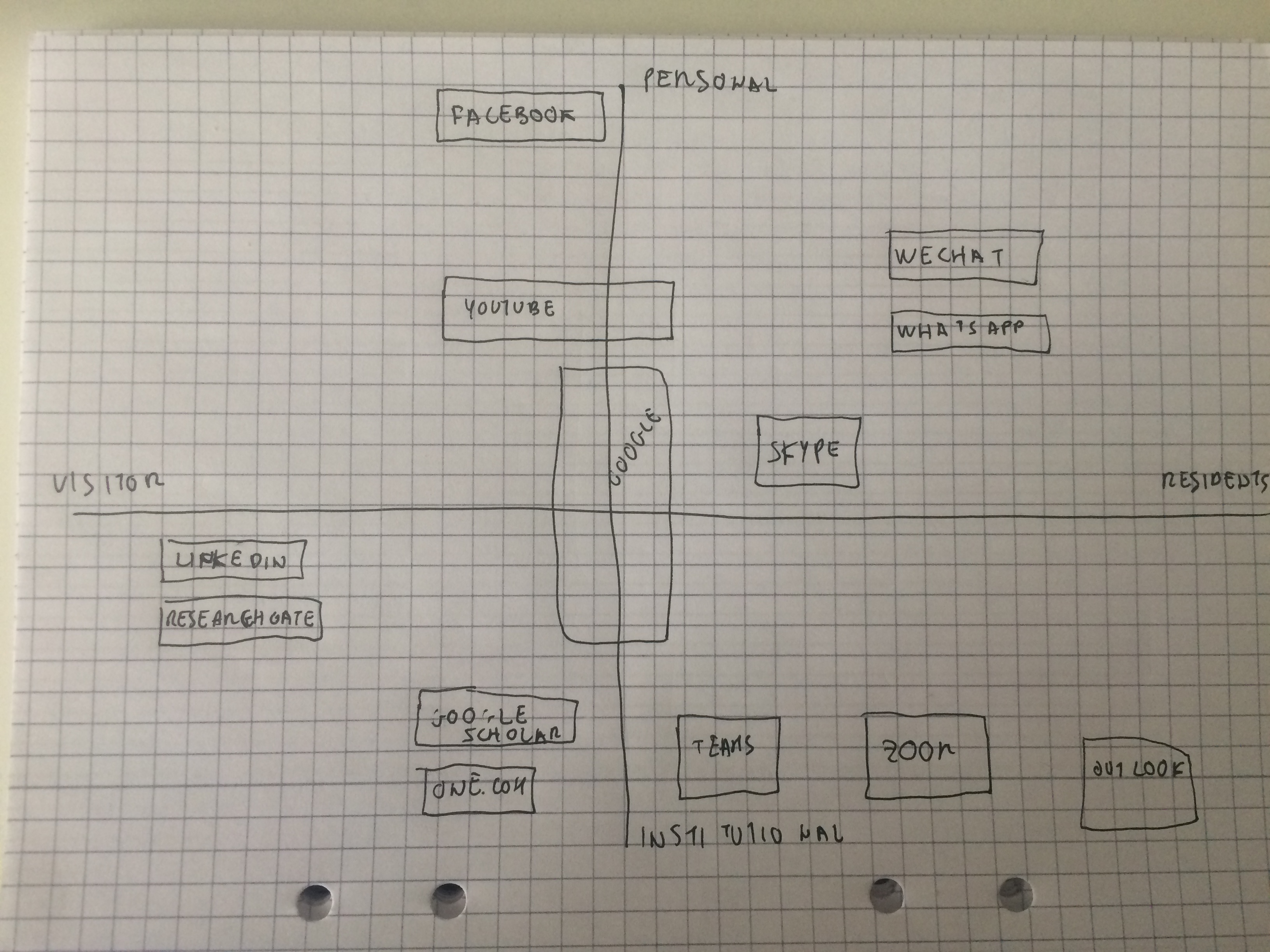During the first two weeks of the ONL course, we have been learning a lot about digital literacy through the enlightening lecture of Prof. David White. He introduced us the concept of “visitors” and “resident” in the context of engagement with the web. Visitors are those who use the web as a tool, instead, residents are those who interact and share with the web [1]. I have really appreciate the exercises done by Prof. David white to let us categorize our engagement to the web. Below is my updated resident and visitor map that help me a lot to make me more aware of my engagement with the web tools.

We have also discussed digital literacy, intended as pool of competences to be able to work in the digital world, mainly towards improving teaching and learning. The ONL course and more specifically our group´s facilitators, they have introduced us and support us in learning and using new digital tools (for instance, https://www.visme.co/, and https://coggle.it/).
In discussing the scenario for the topic 1, we have been focusing on how to create trust in online communities. Within this topic, I have mostly looking into socialization and how to promote socialization in online communities. Socialization is an important part for enhancing the learning activities within for instance an online course. By doing some literature review, I got interested in socializing activities to boost community development and learning [2]. I have discussed those activities with colleagues in the ONL group and at the university and I got a positive feedback on for instance let the students provide a more personal introduction of themselves at the beginning of each course. Another technique that I have learnt that is used to build trust and develop the on-line community of learners is the friendship-based feedback that means boosting the dialogue asking questions and providing nice comments to the received answer with the final goal of facilitating the conversation and discussion in the future [3].
I have really enjoyed work with the group, especially during the last meeting of this topic. We were creating the map of our scenario in coogle and it has been amazing to see how we were helping each other.
References
[1] White, D. S., & Le Cornu, A. (2011). Visitors and Residents: A new typology for online engagement. First monday, 16(9).
[2] Jiang, D., & Zhang, L. J. (2020). Collaborating with ‘familiar’strangers in mobile-assisted environments: The effect of socializing activities on learning EFL writing. Computers & Education, 150, 103841.
[3] Lee, S., Park, D. H., & Han, I. (2014). New members’ online socialization in online communities: The effects of content quality and feedback on new members’ content-sharing intentions. Computers in Human Behavior, 30, 344-354.